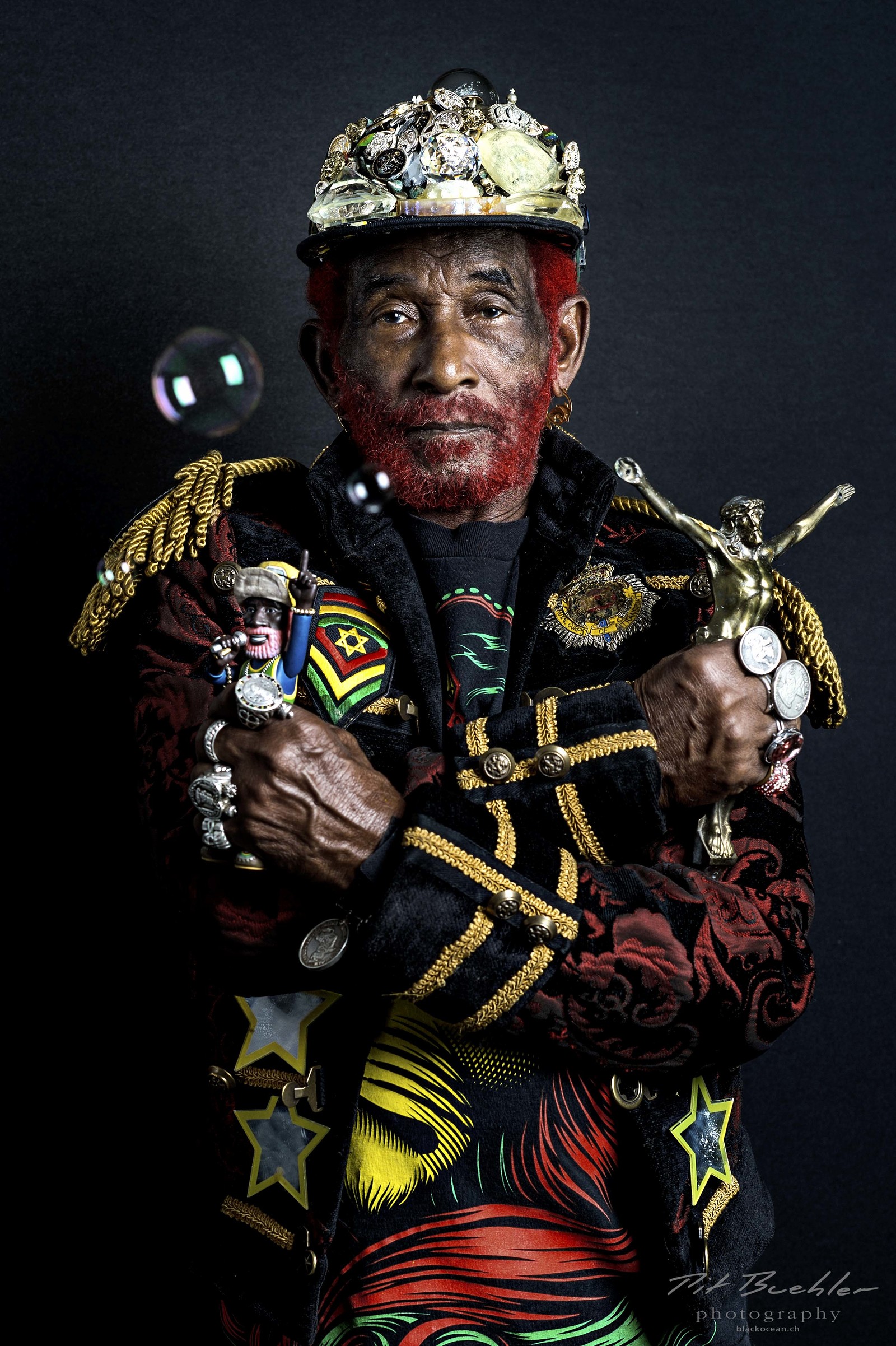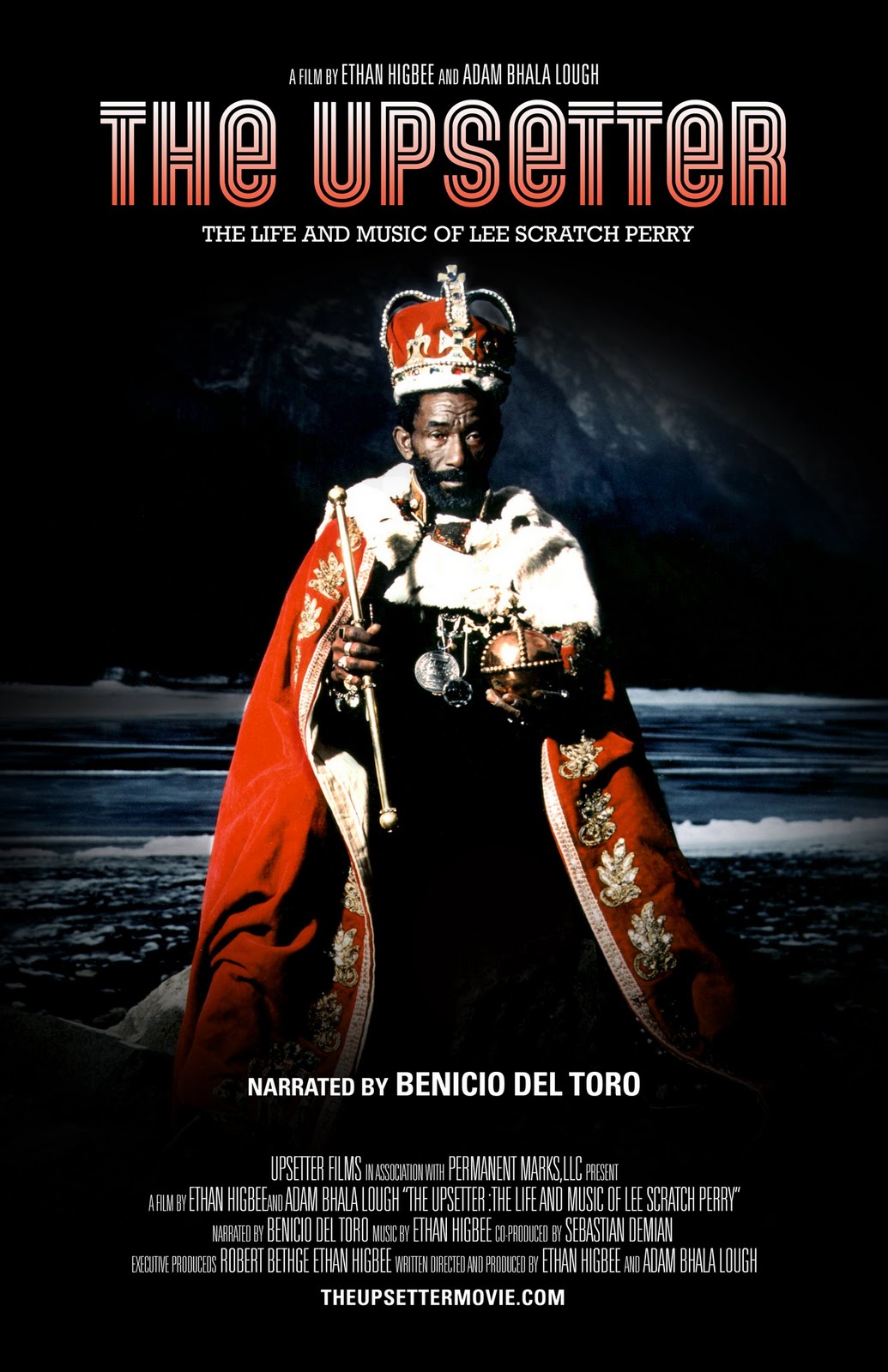

"Scratch had a particular sound and everybody was fascinated by his sound.

Virtually everything Perry recorded in The Black Ark was done using basic recording equipment through sonic sleight-of-hand, Perry made it sound unique. With his own studio at his disposal, Perry's productions became more lavish, as the energetic producer was able to spend as much time as he wanted on the music he produced. He also started the Black Ark label, on which many of the productions from the studio appeared. In 1973, Perry built a studio in his back yard, the Black Ark, to have more control over his productions and continued to produce notable musicians such as Bob Marley and the Wailers, Junior Byles, Junior Murvin, the Heptones, the Congos, and Max Romeo. Brown" (1970) with its unusual use of studio effects and eerie opening highlighting his unique approach to production. In 1970, Perry produced and released the Wailers track " Mr. He soon became known for his innovative production techniques as well as his eccentric character. During the 1970s, Perry released numerous recordings on a variety of record labels that he controlled, and many of his songs were popular in both Jamaica and the United Kingdom, where his instrumental "The Return of Django" was a top five hit in 1969. Similarly his acrimonious 1967 single as Lee "King" Perry, " Run for Cover", was likewise aimed at Sir Coxsone.įrom 1968 until 1972, he worked with his studio band the Upsetters. It is notable for its innovative use of a sample (a crying baby) as well as a fast, chugging beat that would soon become identifiable as "reggae". His first major single "People Funny Boy", which was an insult directed at Gibbs, sold well with 60,000 copies sold in Jamaica alone. Perry broke ranks with Gibbs and formed his own label, Upsetter Records, in 1968. Working with Gibbs, Perry continued his recording career but, once again, financial problems caused conflict. He soon found a new home at Joe Gibbs's Amalgamated Records. Disagreements between the pair due to personality and financial conflicts led him to leave the studio and seek new musical outlets. As his sometimes turbulent relationship with Dodd developed, he found himself performing a variety of important tasks at Dodd's Studio One hit factory, going on to record nearly thirty songs for the label. Perry's musical career began in the late 1950s as a record seller for Clement Coxsone Dodd's sound system. the stone that I was throwing in Negril send me to King Stone for my graduation.") where he apprenticed at Studio One.

Kingston means King's Stone, the Son of the King.

Lee later moved to Kingston after experiencing a mystical connection to stones ("When the stones clash, I hear like the thunder clash. He eventually wound up in Clarendon where he got into the dance and music scene and earned the nickname "The Neat Little Thing". Lee left school at age 15 and lived in Hanover where he did not have much regard for working, and preferred to play dominoes and live according to his own desires.
#LEE SCRATCH PERRY PROFESSIONAL#
His parents were both laborers, but his father later became a professional dancer. His mother had strong African traditions originating from her Yoruba ancestry that she passed on to her son. Rainford Hugh Perry was born on 20 March 1936 in Kendal, Jamaica, in the parish of Hanover, the third child of Ina Davis and Henry Perry. He worked with and produced for a wide variety of artists, including Bob Marley and the Wailers, Junior Murvin, The Congos, Max Romeo, Adrian Sherwood, Beastie Boys, Ari Up, The Clash, The Orb, and many others. Perry was a pioneer in the 1970s development of dub music with his early adoption of remixing and studio effects to create new instrumental or vocal versions of existing reggae tracks. Lee " Scratch" Perry OD (born Rainford Hugh Perry 20 March 1936 – 29 August 2021 ) was a Jamaican record producer, composer and singer noted for his innovative studio techniques and production style.


 0 kommentar(er)
0 kommentar(er)
